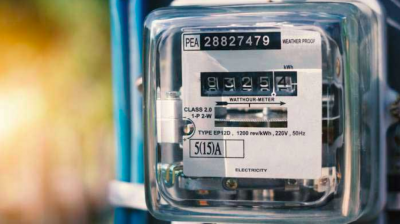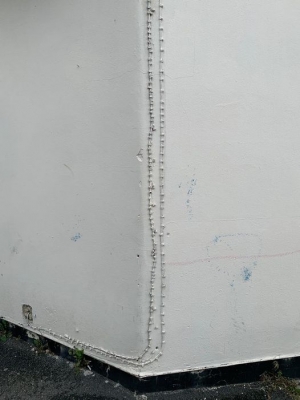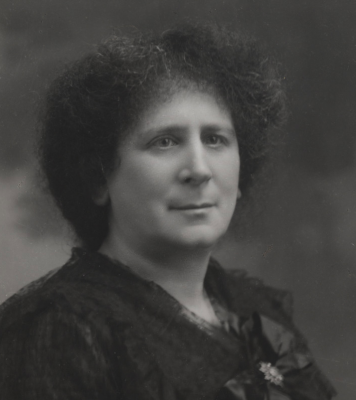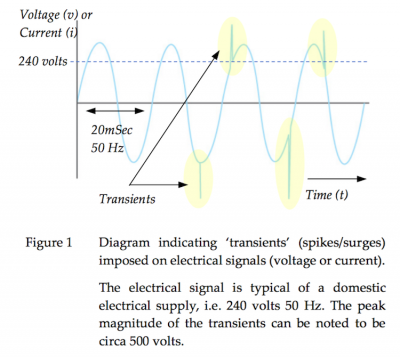This short article attempts to enlighten on the subject of electrical energy, what it is, how its measured, how much (quantum) do we use to say boil a mug of water in a standard kettle, what is the average electrical energy consumption per household.
Attributes of electrical meters are presented, how to check accuracy of a meter and how to check whether a meter is current,.. i.e. on the list of the Governments nationally approved electricity meters.
A brief introduction of electrical ‘smart meters’, is also presented.
Energy
In physics, energyis the quantitative property that must be transferred to a body or physical system to perform work on the body, or to heat it.
The unit of measurement in the International System of Units (SI) of energy is the ‘joule’, which is the energy transferred to an object by the work of moving it a distance of one metre against a force of one newton.
The SI unit of ‘energy rate’ (energy per unit time) is the ‘watt’, which is one (1) ‘joule per second’. Thus, one joule is one watt-second, and 3600 joules equal one watt-hour. Logically, given a thousand (1000) watts is one (1) kilowatt, then one (1) kilowatt hour = 3600 x 1000 = 3,600,000 joules
Electrical power
The three (3) fundamental electrical parameters are voltage (v), current (i) and resistance (r)
Electrical power is derived from the product of voltage and current, hence for an electrical system charged to a voltage of 240 volts and drawing an electrical current of 2 amperes, the electrical power at any time instant (t) given that voltage and current remain constant will be 240 x 2 = 480 watts.
Further if voltage and current remain constant for one (1) hour then the electrical system will consume 480 watt hours of electrical energy or in terms of kilowatts, 0.48 kilowatt hours. (kWhrs).
How to calculate the cost of using an electrical appliance
All electrical companies charge for electrical energy utilising the unit, ‘kilowatt hour’. The ‘monetary rate’ per kilowatt hour commonly referred to as the charge tariff varies, but presently is in the range of £0.12 to £0.2/kWhr.
Specifications for electrical appliances generally state a power rating, i.e. 1 kW or 2 kW etc. hence given a charge tariff of say £0.15 per kWhr, a 1 kW appliance would cost 15p per hour to operate.
How much does it cost to boil a mug of water in a standard kettle
A standard kettle has a power rating of 2.4 kW, therefore adopting the same charge tariff of £0.15, if a kettle were allowed to boil water for one (1) hour the cost of doing so would be 2.4 x 0.15 = £0.36 = 36p.
The figure of 36p is an approximation since an electric kettle consumes more energy to ‘raise’ the temperature of cold water than to sustain water at a temperature of 100OC. However the figure is useful as a gauge to establish energy/monetary consumption/cost.
Average energy consumption per household
According to literature the average electrical energy consumed by a standard sized house is 8-10 KWhrs per day. Logically, the type of electrical appliances, the number of appliances, the time of operation of the appliances and other parameter all influence the electrical energy consumed within a residence or building.
Measurement of consumed electrical energy
An electric meter or energy meter measures the total electrical power consumed over a time interval.
Electric utilities use electric meters installed at customers’ premises for billing and monitoring purposes. They are typically calibrated in billing units, the most common one being the kilowatt hour (kWh). They are usually read once each billing period.
How could we check if an electrical meter is accurate?
The process of checking the accuracy of an electrical meter is quite simple.
- Monitor the meter reading over a fixed period of time (say 15 minutes) and determine the amount of electrical energy consumed. During the time period make sure no electrical appliances are switched on or off.
- Immediately following the monitoring period, switch on an electrical appliance of known power rating, say a hair drier or a heater, for a similar time period. Similarly make sure no other electrical appliances are switched on or off.
- Say, the hair drier has a power rating of 1kW then at the end of the second monitoring period the difference in the two meter reading should be 0.25 x 1 = 0.25 kWhr.
Can electrical meters present a reading error?
Electrical meters have been known to measure and present a reading errors. At times the error may have been generated from a non-sinister fault within the meter. However, clandestine methods are used meter to influenced the measurement accuracy of an electrical meter such that the reading of electrical energy consumed is less that actual.
In these cases the clandestine circumstances are considered to be a ‘theft’ of electrical energy which logically is a criminal offence.
Nationally approved electricity meters
Within the United Kingdom, electricity meters are approved under the Electricity Act 1989 and the pattern or construction of the meter type must conform to the requirements specified in the accompanying regulations.
Formal approval certificates are issued by the Office for Product Safety and Standards (Safety and Standards) to manufacturers of electricity meters. The meters are then listed in Schedule 4 of the Meters (Certification) Regulations, (SI 1998/1566), which is a statutory register of all pattern approved electricity meters suitable for billing purposes in the UK.
Smart Meters
A smart meteris an electronic device that records consumption of electric energy and communicates the information to the electricity supplier for monitoring and billing. Smart meters typically record energy hourly or more frequently, and report at least daily.
Smart meters are convenient both for users and their suppliers. By capturing and sharing an accurate reading of energy usage, smart meters allow energy providers to bill users with precision based on their actual usage amounts as opposed to estimates or in-person meter reads, which are both standard methods of billing.
In addition, smart meters provide users with in-depth information about their own energy usage, which can help them be more conscientious about their energy consumption and focus on the areas where they are using energy most heavily. Both parties, whether in home or business situations, will benefit from more accurate data conveyed in a more convenient way and should see lowered bills and smaller energy consumption after making behavioural changes informed by that data.
Smart meters are enabled by two-way communication between the meter and the central system. Such an advanced metering infrastructure (AMI) differs from automatic meter reading (AMR) in that it enables two-way communication between the meter and the supplier. Communications from the meter to the network may be wireless, or via fixed wired connections such as power line carrier (PLC).
Wireless communication options in common use include cellular communications (which can be expensive), Wi-Fi (readily available), wireless ad hoc networks over Wi-Fi, wireless mesh networks, low power long range wireless (LORA), ZigBee (low power low data rate wireless), and Wi-SUN (Smart Utility Networks).
With all the benefits smart meters may seem like an easy solution to any energy setup. However, as with any connected device, smart meters pose some security risk to users.
One problem is the constantly transmitting nature of the device. Once connected to the AMI, this provides an access point for hackers and other malicious individuals, who can adjust bills, take payment information and more, often without either party ever knowing.
Although there haven’t been any major attacks of smart meters as yet, it’s important for energy providers, and the users they supply, to stay on top of device security.
About the author
Eur Ing Dr Robert Brown (Robert) is the Executive Director of Fraser George and Associates Limited and is a Consultant and Forensic Engineer in the fields Electrical Electronic and Control Engineering.
Robert is an accomplished professional Expert Witness having prepared and presented many court compliant reports and presented oral evidence within the High Court, Crown Courts and County Courts.
For further information please contact Robert via;
Email,…robert.brown@frasergeorge.com or robertbrown@robertbrown.uk.com
Tel Land: +44 (0)1777 709175
Tel Mobile: +44 (0) 7976250624
| https://www.facebook.com/Fraser.George.Electrical.Expert
https://www.facebook.com/EurIngDrRobertBrown |
|
| https://www.linkedin.com/in/consultantrobertbrown/
https://www.linkedin.com/company/21539092/admin/ |
#ExpertWitness #ElectricalExpertWitness #ElectricalExpert #ElectronicExpertWitness #ElectronicExpert #ElectricalShock #Electrocution #ElectricalRegulations #ElectricalStandards #ElectricalConsultant #ElectricalEngineer #ConsultantElectricalEngineer #ConsultantEngineer
#ElectricalRegulationsExpert #ElectricalStandardsExpert #ExpertElectricalEngineer






